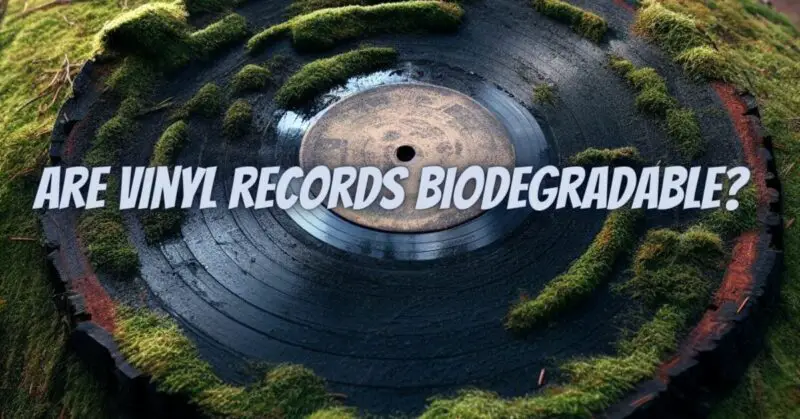Vinyl records, cherished for their analog warmth and nostalgia, have seen a resurgence in popularity in recent years. As vinyl enthusiasts and collectors continue to embrace this classic format, questions about its environmental impact have arisen. One question that frequently comes up is whether vinyl records are biodegradable. In this comprehensive article, we will explore the biodegradability of vinyl records and delve into the environmental considerations surrounding this iconic medium.
Understanding Vinyl Records
Vinyl records, commonly referred to as simply “vinyl,” are made from polyvinyl chloride (PVC). PVC is a type of plastic derived from fossil fuels and is widely used for various applications, including records, pipes, and clothing. Vinyl records consist of a circular disc with grooves that represent audio information. They are played using a stylus, which traces the grooves to produce sound.
Biodegradability of PVC
PVC is not biodegradable in the traditional sense. Biodegradability refers to the ability of materials to break down naturally into harmless substances through the action of microorganisms, heat, and moisture. PVC, being a synthetic plastic, does not decompose in this manner. Instead, it persists in the environment for an extended period.
Environmental Concerns
The production and disposal of vinyl records pose several environmental concerns:
- Production: The manufacturing process of PVC involves the use of hazardous chemicals, including chlorine and phthalates. These chemicals can have detrimental effects on both the environment and human health.
- Energy Consumption: The production of vinyl records, from the creation of vinyl pellets to the pressing and packaging, requires substantial energy inputs. This energy often comes from non-renewable sources and contributes to greenhouse gas emissions.
- Waste Generation: Discarded vinyl records contribute to plastic waste pollution. Unlike organic materials, PVC does not biodegrade, leading to long-lasting environmental impact.
- Transportation: Vinyl records are often shipped internationally, increasing their carbon footprint due to long-distance transportation.
- Water Usage: Vinyl manufacturing requires significant water usage for cooling and cleaning processes, which can strain local water resources.
Alternative Materials and Recycling
While traditional PVC vinyl records are not biodegradable, efforts are underway to explore alternative materials and recycling options. Some environmentally conscious musicians and labels are investigating the use of recycled vinyl and plant-based plastics as alternatives to traditional PVC. These materials aim to reduce the environmental footprint of vinyl records and offer greener options for vinyl enthusiasts.
Recycling PVC can be challenging due to the need for specialized facilities. However, there are initiatives to develop recycling methods for PVC products, including vinyl records. Recycling, if viable, could help mitigate the waste problem associated with vinyl.
In conclusion, vinyl records made from PVC are not biodegradable in the conventional sense. Their production and disposal can have adverse environmental effects, including the release of harmful chemicals and long-lasting plastic waste.
As a vinyl enthusiast or collector, you can make more environmentally responsible choices by considering alternatives, supporting eco-friendly initiatives, and exploring recycling options. While vinyl records hold a cherished place in music history, finding ways to reduce their environmental impact is a collective responsibility as we seek to preserve both our musical heritage and the health of our planet.


